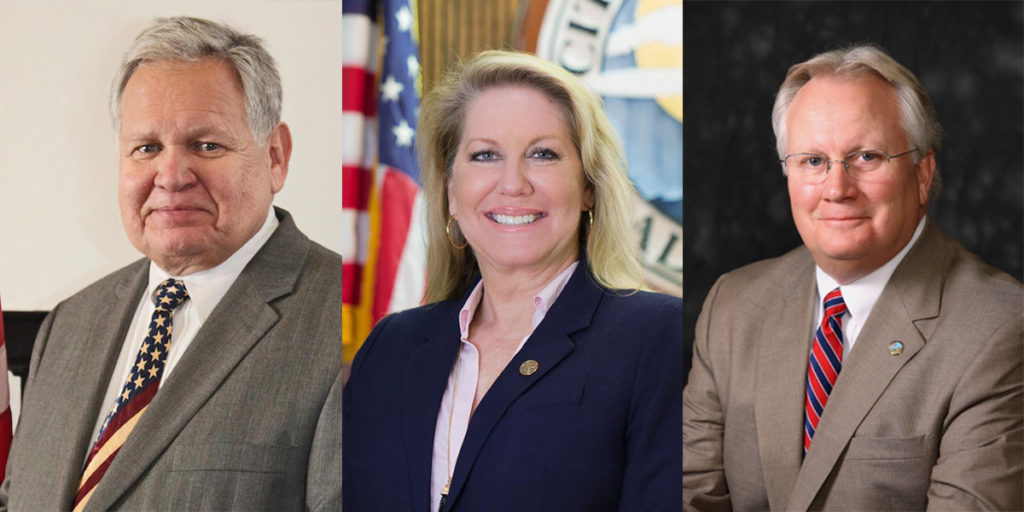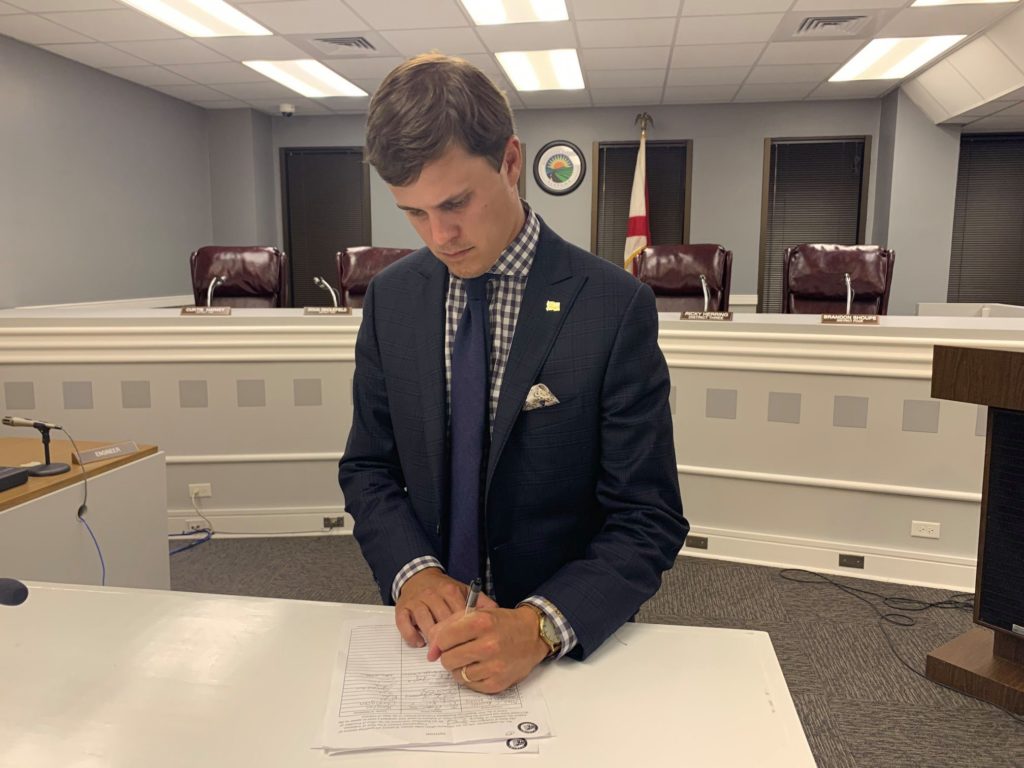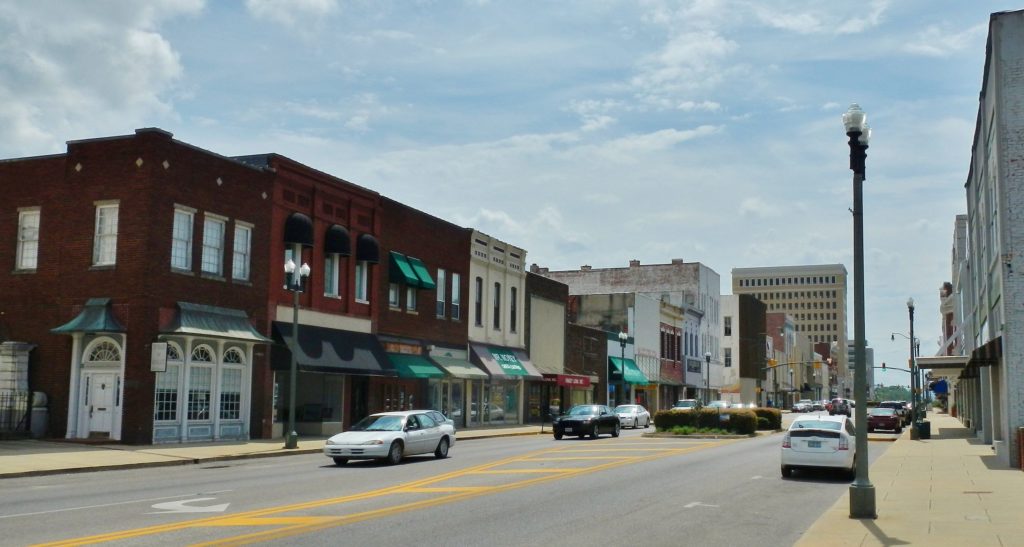Will toll opposition continue to make a difference in mayoral elections Fairhope and beyond?

In the summer of 2019, the opposition to the toll bridge on I-10 in Alabama reached a fever pitch. The project included a new 2.5-mile-long, six-lane cable-stay bridge and involved a complete replacement of the existing I-10 Bayway. The project would cost a considerable amount of money, with the price tag rising exponentially as the plans were finalized. John Cooper, the director of the Alabama Department of Transportation and Governor Kay Ivey insisted the only way to fund the project would be to toll drivers. While they expected opposition, those in Montgomery thought that they’d steamroll the opposition. State Auditor Jim Zeigler explained what opponents were up against, telling AL.Com on the night project died, “When we first started, several people told me that ‘you’re wasting your time. It’s a done deal, and there isn’t a thing you can do. It’s a done deal. But now, it’s a dead deal.” It’s easy to look back at the fight, especially the end of the battle when politicians started tripping over themselves to rush to the side of the overwhelming majority of residents opposed to the plan and see its death coming by 1,000 cuts, but it’s essential when we look to the future that we look at the history and what happened. There’s no better place to look than Zeigler’s book, Blocking the 1-10 Toll Scheme: A Successful Citizen Movement. In the book, he describes in detail the timeline from start to finish of the grassroots efforts to stop the bridge. In an interview with Alabama Today, he noted, “The book doesn’t favor any one person or seek to endorse anyone. It simply gives a timeline of what progressed.” A free copy of the book is available at: http://tinyurl.com/BlockingTheToll In it, he describes the Fairhope City meeting, which was planned to be at the Fairhope Civic Center, in the large city council meeting room. There were 33 people who opposed the toll scheduled to testify. Only two people were slated to testify in favor of the toll. Neither of those people ended up speaking. The meeting lasted four hours. In the end, the ESMPO members voted 8 to 1 in favor of the motion to remove the toll project from the TIP. Zeigler stated in his book that the community effort to kill the toll was partly due to the skilled organization of several people, including Karin Wilson. Fairhope’s mayor, Karin Wilson, played a vital role in stopping the toll plan. Mayor Wilson was the first member of the Eastern Shore Metropolitan Planning Organization to oppose the toll plan. She made the argument that the state should have invested the BP settlement money to fund the project instead of using the money as part of their operating budget. Wilson took to her Facebook page to express her opposition. “I’m 100% against a toll to build this bridge whatever the fee.” Wilson continued, “The critical need for a new bridge has been discussed for over a decade. To react as though building it now is an overnight emergency is absurd. It’s the perfect example of government getting away with zero accountability. A household or business cannot operate with the idea that if we cannot balance our budget we can force someone else to pay for it. We must budget within our means or fail and suffer the consequences. It’s a pretty good incentive having to be accountable.”Zeigler himself rallied opponents on his own Facebook page, gathering 55,000 people to fight the project. Other officials on the ESMPO who voted against the toll were Daphne mayor Dane Haygood, Spanish Fort mayor Mike McMillon, Loxley mayor Richard Teal, Fairhope city council president Jack Burrell, Daphne city councilman Ron Scott, Baldwin county commissioner Billie Jo Underwood, and Baldwin county commissioner Joe Davis.Zeigler’s citizen group named Block the Tolls. Support Accountability is still active with 52,000 members. Will the toll issue and toll fighters make a difference in the upcoming municipal elections on August 25? Because the toll proposal could resurface at any time, it is likely that citizens will remain engaged. Since the toll plan was blocked on August 28 of last year, the group succeeded in defeating Amendment One on the March 3rd ballot. It would have taken away the right to vote for or against members of the State School Board and make them all appointed by the governor. The proposal was demolished, 75% no to 25% yes. It was another victory for the ‘No Tolls’ group. Mobile County Commissioner Jerry Carl, who drafted the resolution to remove the toll from the Transportation Improvement Plan won the Republican nomination for Congress on July 14 by a vote of 52% to 48%. Will the 52,000 toll-fighting activists make a difference in the August 25 municipal elections? Will they remember those officials who helped block the toll? Over 2,000 of the toll fighters live in the City of Fairhope, where there is a contested Mayor’s race. Fairhope is considered a bellwether of the continuing influence of Zeigler’s citizen group.
Alabama leaders urge Commission on Presidential Debates to add another debate in September before early voting

Lieutenant Governor Will Ainsworth has released a letter he sent to The Commission on Presidential Debates. He, along with House Majority Leader Nathaniel Ledbetter and Senate Majority Leader Greg Reed, asked the Commission to schedule a presidential debate in Alabama in early September. The first debate will be on September 29th. Early voters in Alabama won’t be able to see those debates before they vote. “Alabamans who vote early deserve the same opportunity afforded to other states to hear the two competing visions for our country and make a well-informed decision when casting their vote at the ballot box,” said Ainsworth.
Lawyer: State Rep. Will Dismukes maintains innocence

Montgomery District Attorney Daryl Bailey said the business made a complaint on May 20.
Anniston city council votes to relocate Confederate monument

Anniston’s mayor asked the council in June to consider removing the monument.
Rauf Bolden: Many questions remain on Mayor Tony Kennons’s “work” boat outing

Rauf Bolden thinks the mayor of Orange Beach exposed the city to an unnecessary liability and violated ethics laws in the process.


